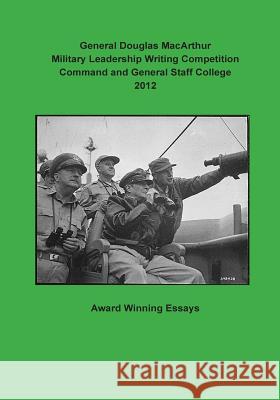General Douglas MacArthur Military Leadership Writing Competition Command and General Staff College 2012 » książka
General Douglas MacArthur Military Leadership Writing Competition Command and General Staff College 2012
ISBN-13: 9781500589875 / Angielski / Miękka / 2014 / 68 str.
General Douglas MacArthur Military Leadership Writing Competition Command and General Staff College 2012
ISBN-13: 9781500589875 / Angielski / Miękka / 2014 / 68 str.
(netto: 64,99 VAT: 5%)
Najniższa cena z 30 dni: 64,11 zł
ok. 13-18 dni roboczych
Dostawa przed świętami

Darmowa dostawa!
There are very few tasks in the Army more important than developing effective, competent leaders. As a significant part of this effort, the Army provides Field Manual (FM) 6-22, which establishes leadership doctrine and fundamental principles to guide leaders at all levels. In support of this important objective, the manual offers a comprehensive framework for leadership that explicitly outlines the highly valued characteristics and competencies all leaders are expected to aspire and emulate. However, as valuable as this framework may be, much of its content is based upon intuition and experience. As expressed in FM 6-22, the manual "combines the lessons of the past with important insights" in establishing a model for competent leadership. While this approach to framing leadership has value, it can also be a significant limitation that potentially overlooks other highly influential factors to producing successful leadership and positive organizational outcomes. Similar to flaws in relying exclusively on anecdotal evidence, there may be important factors identified within the empirical literature absent or lacking emphasis in FM 6-22. Further, certain characteristics or competencies may be more important than others depending on the context or leadership position. These limitations suggest a review of relevant research is necessary to enhancing the Army's current model of leadership.











